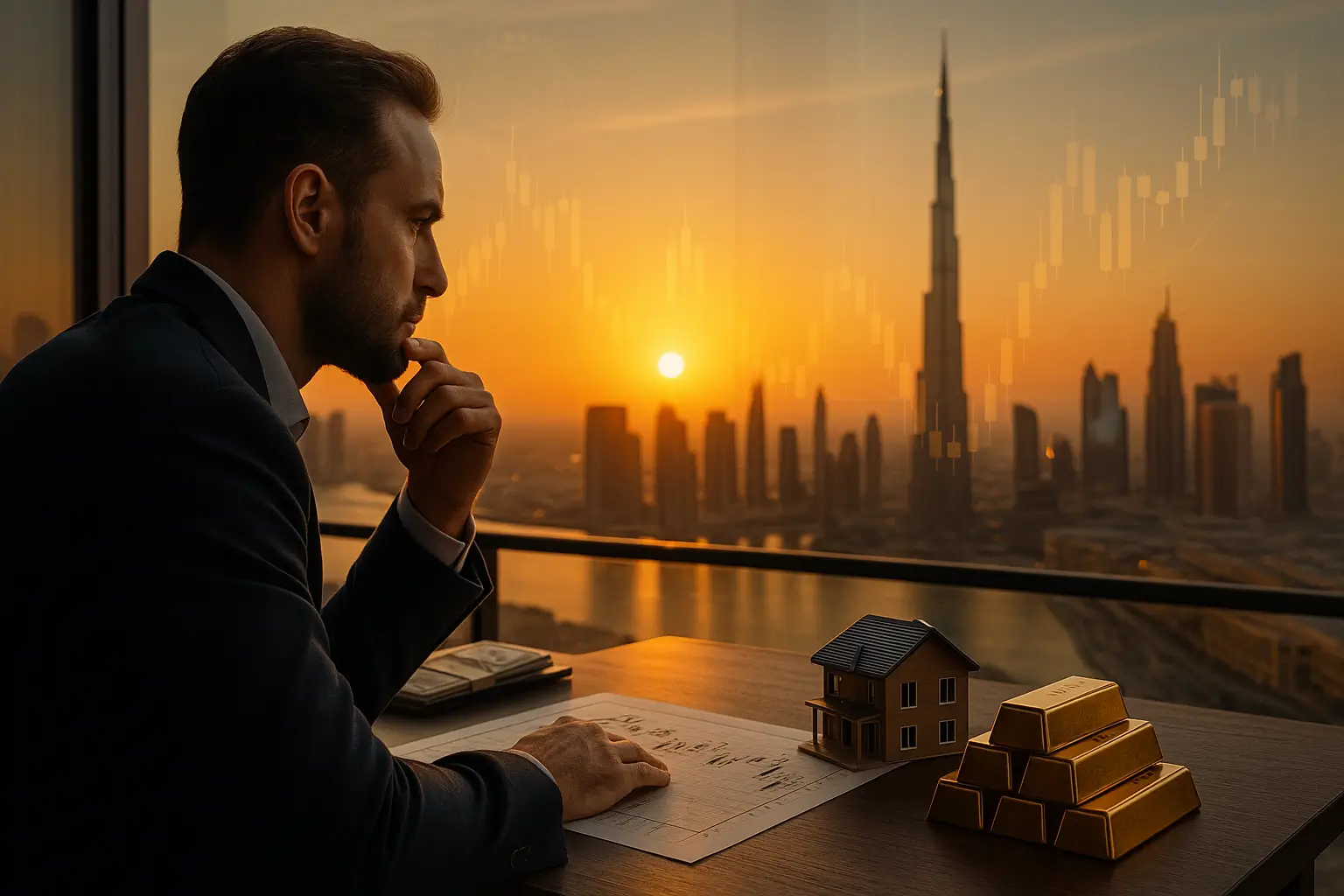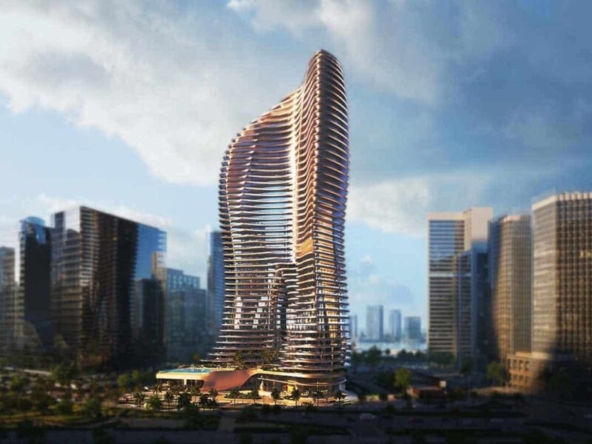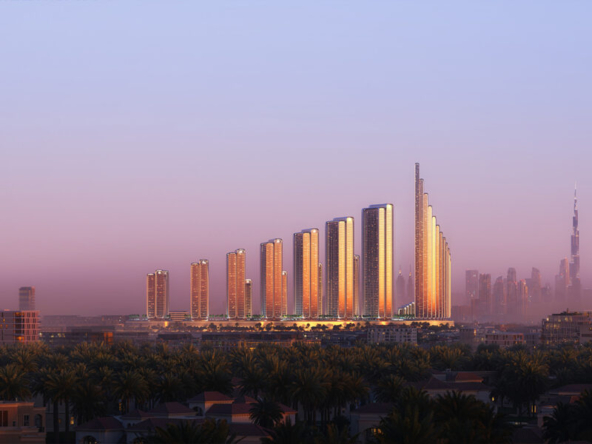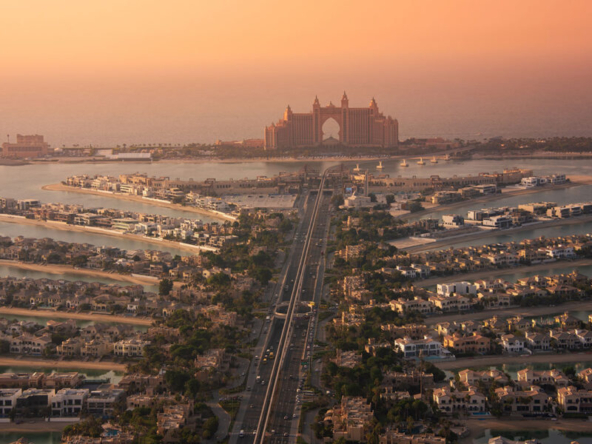In today’s world of fluctuating global markets, unpredictable interest rates, and geopolitical instability, investors are searching for safe havens that can deliver stable returns and long-term value. While traditional markets such as stocks and bonds often experience volatility, real estate — especially in Dubai — stands as a resilient and lucrative alternative. Over the past decade, the emirate has transformed into a global hub for real estate innovation, offering tax-free investment opportunities, high rental yields, and strong regulatory frameworks that attract investors from around the world.
Why “Smart Investing” Matters in Volatile Times
Smart investing isn’t about reacting to market fear — it’s about anticipating growth opportunities where others see risk. In uncertain times, diversification and asset stability become essential. Investors are increasingly favoring tangible assets like property that not only protect capital but also generate consistent income.
Dubai’s real estate market offers precisely this balance — combining high liquidity, international investor accessibility, and robust infrastructure development. The government’s forward-thinking economic policies and visionary projects have positioned the emirate as a strategic investment destination during global financial turbulence.
Dubai Real Estate: A Market Built on Stability and Vision
1. Tax-Free Advantage
Dubai’s zero income and property tax policy continues to be a major attraction. Investors retain a higher share of returns compared to other global markets where taxes significantly reduce profit margins.
2. High Rental Yields
With rental returns averaging 6–8%, Dubai consistently ranks among the top cities worldwide for rental income. Popular areas like Downtown Dubai, Dubai Marina, and Jumeirah Village Circle (JVC) offer strong yields and growing tenant demand.
3. Strategic Global Location
Located at the crossroads of Europe, Asia, and Africa, Dubai’s geographical position ensures sustained real estate demand from international investors and expatriates. Its world-class infrastructure — airports, ports, and digital connectivity — further enhances its appeal.
4. Regulatory Transparency
The Dubai Land Department (DLD) and Real Estate Regulatory Agency (RERA) have implemented transparent systems to protect buyers and developers. Blockchain-based property registration and escrow laws ensure every transaction is secure.
5. Sustainable Growth Vision
Through its Dubai 2040 Urban Master Plan, the emirate aims to expand green spaces, enhance community living, and create future-ready developments — all contributing to long-term property value appreciation.
Performance Insights: Resilience Amid Global Challenges
Even during global disruptions such as the pandemic or inflationary periods, Dubai’s real estate market has demonstrated remarkable adaptability. While other global property markets slowed, Dubai recorded significant growth in both transaction volumes and price indices.
According to recent reports, 2024 witnessed record-breaking property sales exceeding AED 400 billion, highlighting investor confidence and continued market strength.
The surge in demand for luxury villas, waterfront apartments, and branded residences reflects Dubai’s evolving investor demographics — from speculative buyers to long-term homeowners and institutional investors.
Key Trends Driving Dubai’s Real Estate Boom
1. Golden Visa Program
The introduction of long-term residency options, including the 10-year Golden Visa, has encouraged global investors and high-net-worth individuals to settle and invest in Dubai with greater confidence.
2. Off-Plan Investment Opportunities
Off-plan properties are gaining traction due to flexible payment plans, lower entry costs, and high appreciation potential upon completion. Developers like Emaar, Damac, Sobha, and Nakheel are leading the wave with premium developments across the city.
3. Technology and Smart Living
Dubai’s vision of becoming the world’s smartest city is reflected in its real estate sector — featuring AI-driven property management, energy-efficient systems, and smart home integration.
4. Tourism-Driven Demand
As one of the world’s top tourist destinations, Dubai’s short-term rental market is thriving. Investors benefit from platforms like Airbnb, which enable them to maximize rental income through seasonal demand peaks.
How Smart Investors Are Adapting
Smart investors in 2025 are not simply buying property — they are strategically aligning portfolios with Dubai’s urban growth. Key strategies include:
-
Focusing on emerging communities like Dubai South, Arjan, and Business Bay for long-term gains.
-
Leveraging fractional ownership and REITs (Real Estate Investment Trusts) for liquidity and diversification.
-
Using data analytics to identify undervalued properties and predict market trends.
-
Opting for sustainable developments, which promise higher appreciation and align with global ESG (Environmental, Social, and Governance) goals.
Expert Insight: Why Timing Matters
Dubai’s real estate market is entering a golden era of sustainable expansion. Lower interest rates, relaxed visa rules, and continued infrastructure investment are fueling confidence. Smart investors recognize that timing is critical — entering the market before the next price surge ensures maximum return potential.
Whether you are an expatriate seeking a home or an international investor looking for portfolio stability, Dubai’s property market offers both safety and opportunity — a rare combination in uncertain economic times.
Conclusion: Dubai — The Smart Investor’s Safe Haven
In an unpredictable global landscape, Dubai real estate emerges as a beacon of stability, innovation, and growth. Its strategic policies, tax-free structure, investor-friendly ecosystem, and visionary leadership continue to drive sustainable development.
For those who value long-term security, global connectivity, and high returns, investing in Dubai real estate isn’t just a smart decision — it’s a future-proof strategy.




